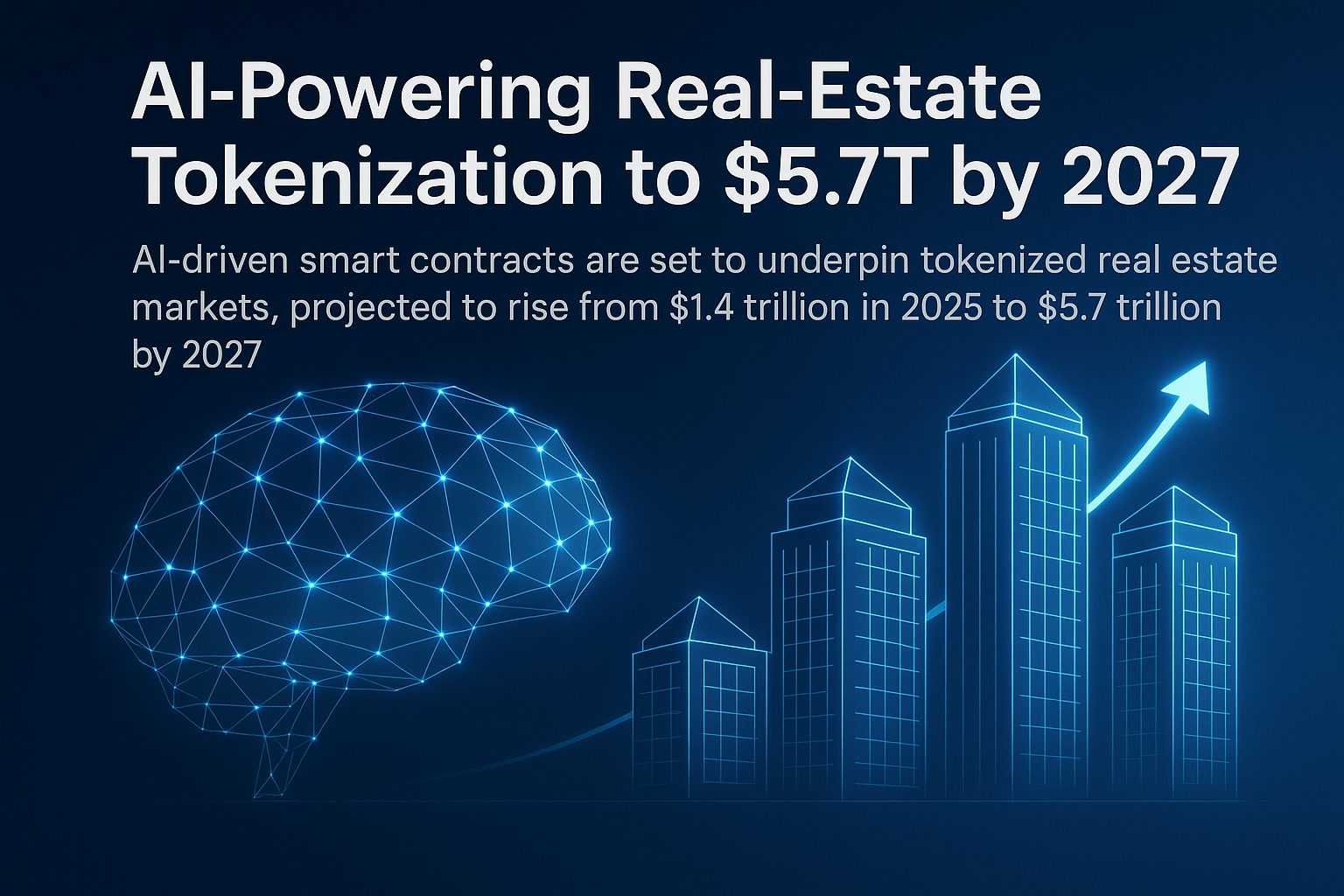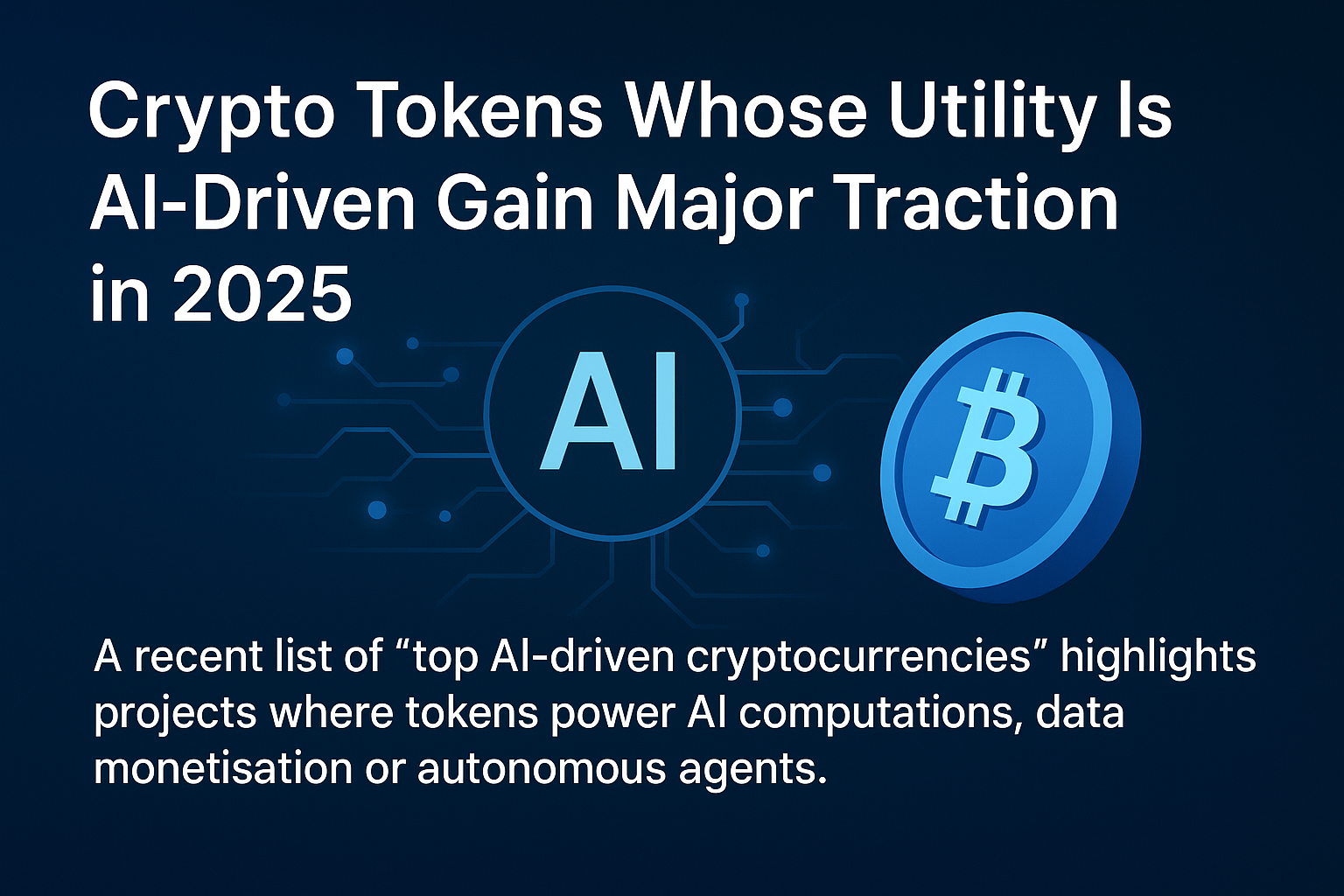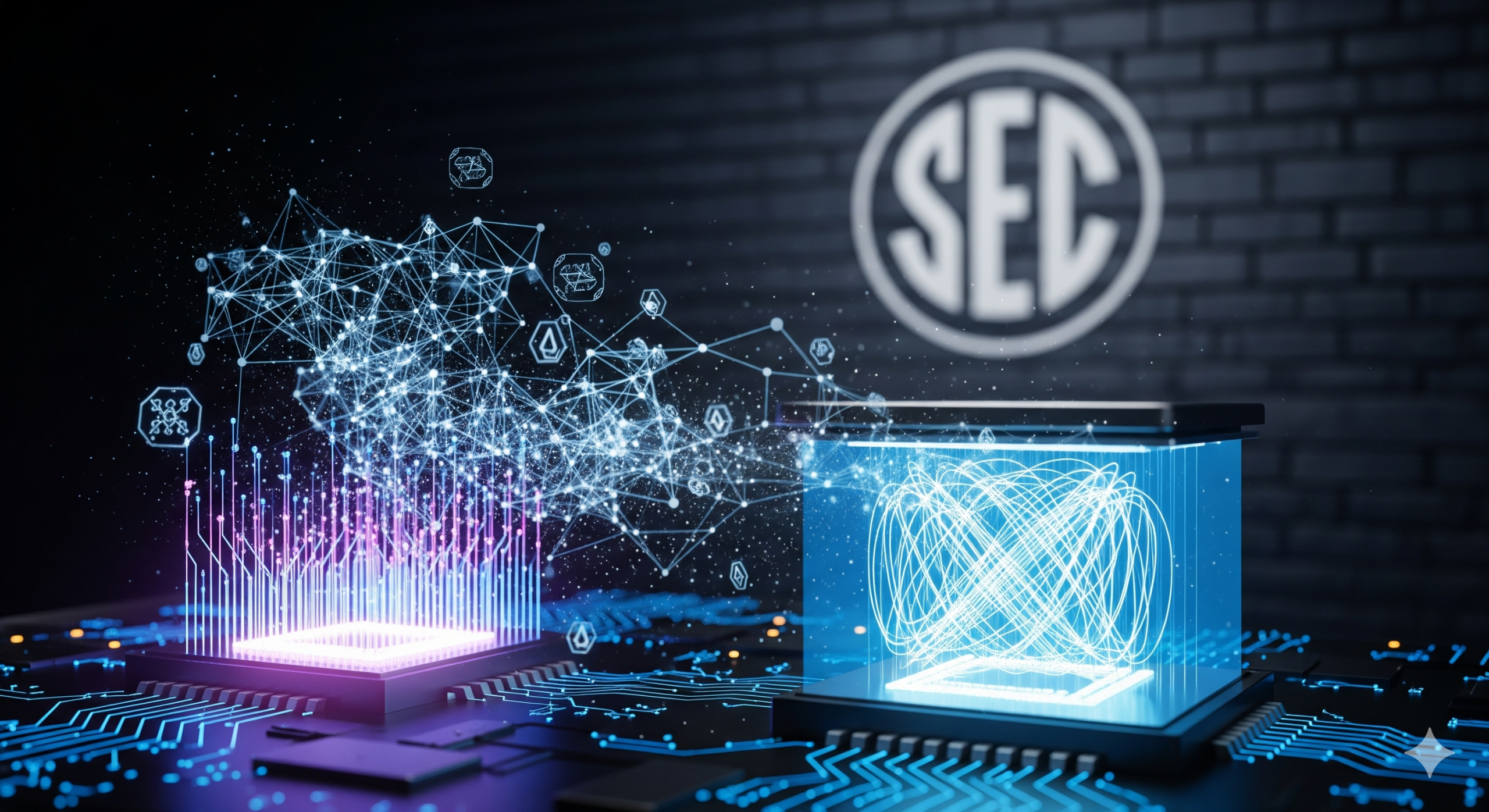The real estate sector, one of the oldest and most valuable asset classes in the world, is undergoing a revolutionary transformation. Thanks to artificial intelligence (AI) and blockchain technology, tokenized real estate is on track to grow from $1.4 trillion in 2025 to a staggering $5.7 trillion by 2027, according to projections from Medium and Forbes. This explosive growth is set to redefine property ownership, investment, and management.
The Fusion of AI and Blockchain
At the heart of this transformation are AI-driven smart contracts — self-executing agreements coded onto blockchain networks that automatically enforce terms and conditions. Unlike traditional real estate deals bogged down by paperwork, intermediaries, and high transaction costs, AI-powered smart contracts streamline processes, mitigate human error, and enhance security. These contracts can dynamically adjust terms, verify identity, and even handle regulatory compliance in real time.
The result? A dramatic reduction in operational costs, greater transparency, and faster transactions. By eliminating friction points in property trading and management, AI-enabled tokenization is democratizing access to real estate markets once dominated by institutional giants.
Why Tokenization Is Booming
Real estate tokenization involves creating digital tokens that represent fractional ownership of physical properties. This approach unlocks liquidity in an otherwise illiquid asset class, allowing investors from around the world to buy, sell, or trade fractions of properties like stocks. AI algorithms assist in valuing these tokens, managing portfolios, and predicting market trends — creating smarter, more agile investment opportunities.
What’s fueling the surge in tokenization?
-
Lower Barriers to Entry: Individuals can invest in high-value properties with as little as a few hundred dollars, rather than millions.
-
Global Marketplaces: AI-driven platforms can match investors and assets across borders seamlessly.
-
Enhanced Security: AI helps detect fraud, verify identities, and ensure compliance, making tokenized investments safer.
-
Operational Efficiency: Automation through AI slashes costs related to administration, legal, and brokerage services.
Challenges and the Road Ahead
Despite the promise, challenges remain. Regulatory frameworks for tokenized real estate are still evolving. There is a need for standardization in token models and governance. Moreover, integrating AI in legal and compliance areas will require ongoing refinement to ensure ethical and fair outcomes.
Yet, the momentum is undeniable. As AI capabilities continue to advance, and as blockchain infrastructure matures, tokenized real estate is poised to reshape the $300+ trillion global property market — making it more inclusive, efficient, and resilient.
By 2027, what seems futuristic today may well be the new normal in property ownership and investment.




